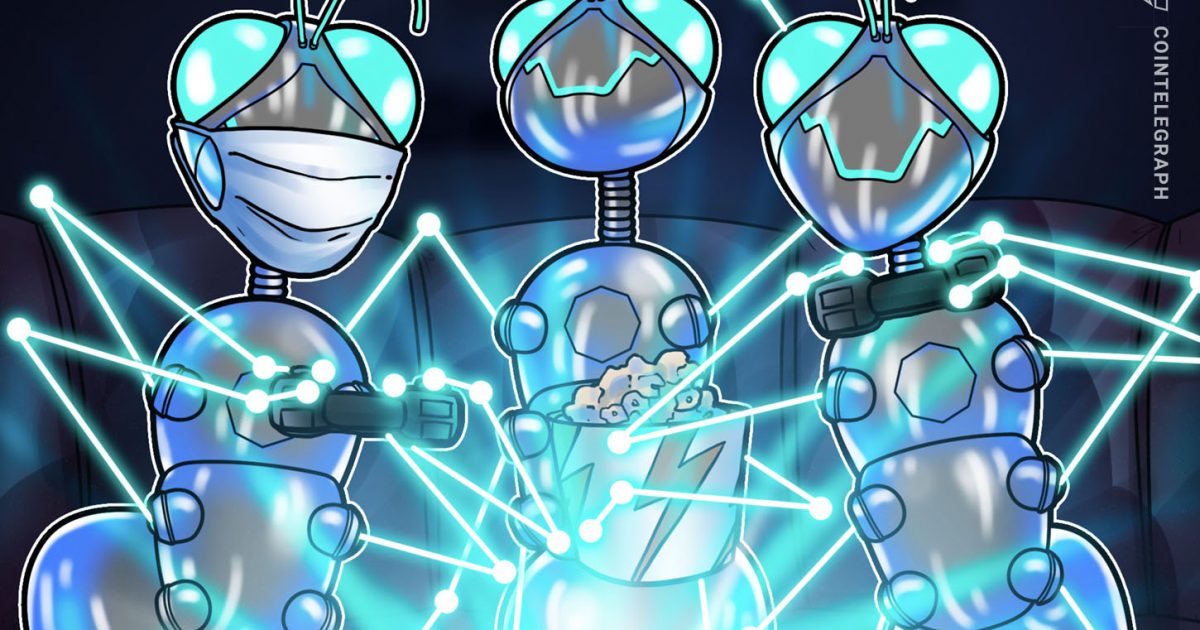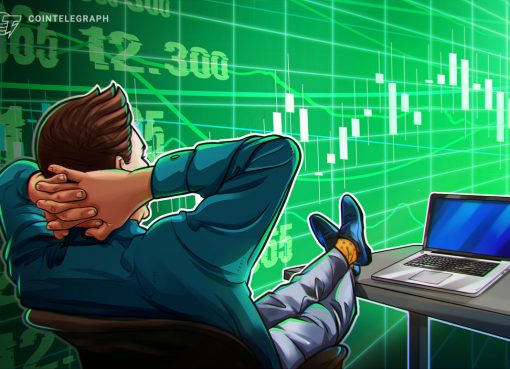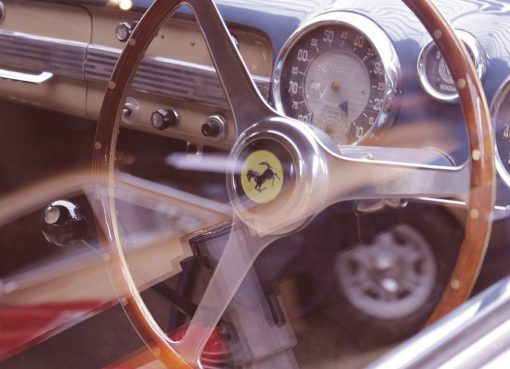For an industry starved of end-users, few apples look juicier to the blockchain world than gaming. The global gaming market is forecast to generate over $159 billion in revenue in 2020, and at a recent two-day digital conference the Blockchain Gaming Alliance made it clear that its members are aiming to take a bite.
There are an estimated 2.7 billion gamers worldwide, or around a third of the global population. In terms of mainstream adoption, that puts gaming in a similar tier as breathing oxygen and drinking water.
If just a fraction of those gamers were to welcome blockchain technology into their lives… well let’s just say that the crypto industry has long been yearning for such levels of penetration among the general populace.
Fortunately, blockchain features an array of compelling use cases to lure gamers into its fold, and the technology brings a whole new range of possibilities to the medium.
The Blockchain Game Alliance was formed to be the siren’s song which would promote the benefits of blockchain technology to the gaming industry at large. The BGA encourages the adoption of decentralized gaming, nonfungible tokens, and even elements of decentralized finance by highlighting new ways to create, publish, play, and build strong communities around games.
BGA members represent all aspects of the gaming and blockchain industries, and the organization holds regular presentations and workshops. It is also dedicated to promoting diversity and encouraging more women to become part of the blockchain gaming industry.
The most recent event, split into two parts across Nov. 4 and 11, was the BGA Game Demo Day, allowing members the opportunity to display their latest developments and upcoming offerings.
And so it was that I spent the past two dark, rainy, autumn Wednesday evenings glued to my screen, scribbling down notes and finding myself impressed by the future augured in blockchain-based gaming.
But first, a disclaimer. As there were so many games shown across the two parts of the event, I have tried to focus on games that haven’t previously been featured here on Cryptox.
That said, this article will be analyzing an incredibly diverse range of blockchain-enabled games, including cutting-edge virtual and augmented reality experiences, open-world roleplaying titles, classic tabletop trading card battlers, and even a text-based multi-user dungeon, or MUD, which is a nigh-forgotten game format that has been around since the 1990s.
Reality bites…
Is the slow and meaningless trudge of everyday existence getting you down? Well why not swap that for the shiny new virtual reality of Somnium Space?
Perhaps the most visually impressive demo of the event, Somnium Space is an open and persistent 3D universe, allowing users to create and interact with almost anything they so desire.
Accessible using either a VR headset or standard web browser, the demo featured an NFT art gallery in which users purchase the art directly from the game universe.
Or perhaps you prefer your reality augmented? In which case, maybe Reality Clash is more your thing?
Available now on the iOS and Google Play stores, this AR shooter places your avatar in an online battlefield called ‘The Sim’, where your real-world movement translate into action in-game.
Reality Clash is all about the guns, which are NFTs that can be built, upgraded and sold to other players. However, I doubt even a gun that sports a high, blockchain-verifiable kill rate and headshot ratio can’t turn my clumsy fingers into those of a master marksman.
Penny arcade
There were several casual and arcade games demoed across the two evenings (or mornings depending where in the world you were).
Gala Games’ Town Star is a farm-building sim playable on mobile or via browser. It features weekly competitions with cash prizes for players who can grow and sell the most of a specified type of crop. It also features crypto inventory items which can be collected and built into bots to automate certain tasks.
Mib Trek, meanwhile, takes you on a scavenger hunt through various marble-based universes in search of “genesis” marbles. These are hidden in different Ethereum (ETH) wallets, which you can unlock after solving clues found in-game.
Mib Trek’s gameplay is of the “match three” variety, but various missions reward different marble types. These must be collected and fused into compound types in order to create the crystals which will lead you to the genesis marbles.
Another mining-inspired game, Mines of Dalarnia, demoed a bunch of new user-requested features, including more complex tokenomics. This Dig Dug-like mining game requires players to explore mines looking for minerals with which to upgrade their equipment giving them access to yet more mines.
All in-game elements are represented by crypto tokens, and the mining theme felt especially apt for a blockchain game.
Trading places
Fans of trading card battles were not to be disappointed, as there were two on show during the event.
Dark Country has mashed together thematic elements of the American Wild West and dark occult rituals to create a unique, gothic ambiance. Skill must be used to build up an impressive deck of cards with which to battle, and the gameplay will be familiar to anyone who has played competitive tabletop card games.
Dark Country’s battle structure sees distinct phases of battle as more powerful cards can only be played in later stages, meaning long-term strategy is key to success.
Another trading card game I saw, which I’m sure will delight many, was Doctor Who: Worlds Apart. This fully licensed game features a cast of characters from the entire 57-year history of the Doctor Who saga.
The artwork for each character has been hand-drawn and subsequently approved by the BBC in an attempt to make the cards into real collectible items. Sadly, players will have to wait a year before they are able to play the game, although a card presale is set to be held in December.
MMOs curing autumnal throes
Massively multiplayer roleplaying games, or MMORPGs, were well represented at the event.
Ember Sword is an isometric world in which resource collection, crafting, trading and buffing skills all lead to some advanced monster slashing.
Unlike many blockchain games, Ember Sword is defiantly not pay-to-play and as such, quest items are not held on-chain. However, you can collect and trade cosmetic collectible NFTs, and even buy a plot of land on which to build and earn revenue.
The Enjin platform briefly showed another isometric RPG called Lost Relics, although this was mainly to demonstrate the ability to use certain NFTs in multiple games through the Enjin multiverse.
Wavelings is a third person MMORPG set in a dystopian sci-fi universe. However the demo shown was still in very early stages, with open testing not being planned until Q4 2021.
The Six Dragons is an open world fantasy RPG fully backed by blockchain tech. It has innovative touches such as allowing the holder of a rare item-recipe to provide crafting services for the other players — for a fee of course.
It will soon be arriving on the Playstation platform, making it the first blockchain game to launch on a major console.
Highlights and oddities
Despite the diversity of this crowd, there were some games that really stood apart.
Soccer Manager Elite, in case you hadn’t already guessed, is a decentralized soccer management simulation.
Managers can choose team tactics and lineups, and players can also buy shares in the various clubs and players. This gives them voting rights on decisions such as who to hire as manager and making the clubs essentially act as miniature decentralized autonomous organizations.
Second Legion presented what it described as ‘Rare Boards’. These are digital art pieces with standalone playable games layered over the artwork. The first game is a darts simulator layered over an NFT featuring artwork from renowned crypto-artist, Alotta Money.
And finally… Waterdeep is a text-based online adventure game, which has been live since 1997. It has recently integrated an ERC-20 governance token called Duma, allowing users to vote on new rule suggestions for the game.
It also has integrated bots which can read and interact with smart contracts on the blockchain directly from within the game itself. It really is astonishing to see what many would consider a relic, at least in gaming terms, interacting with blockchain technology to implement new features.
Looking to the future
And that was all that one viewer could take in! Thankfully, anybody wishing to watch BGA’s Game Demo Day for themselves can still do so, as the streams for both Part One and Part Two are available on YouTube.
With so many interesting, challenging and unique games both available now and on the horizon, blockchain gaming is really starting to find its feet.
We’ll be taking a closer look at some of these games and others in the blockchain space in the near future!




